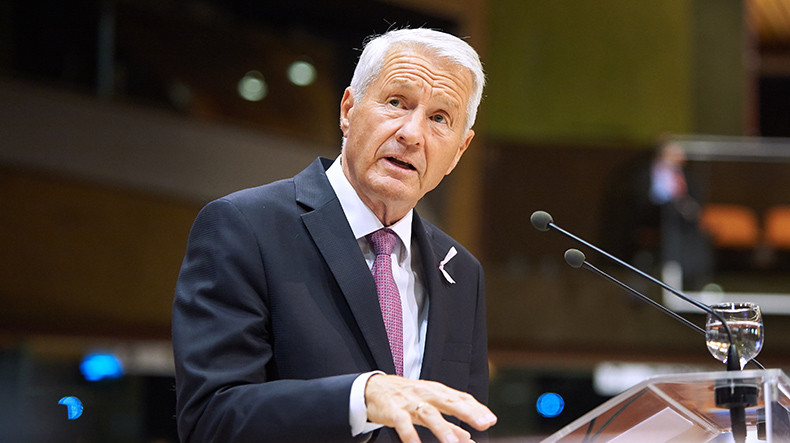
Secretary General: CoE staff will be reduced by 10% in case Russia fails to make its annual payment
“It is of course a challenge for us if a member State does not pay its fee. That is simply unacceptable; we cannot have member States that do not finance the budget. If a member State does not finance the budget, it cannot be a member. It causes a financial problem – but that can be overcome. If you are referring to the Russian Federation, that is 10% of the budget, and that means we have to restructure the Organisation and reduce staff by 10%. That is clear and it can be done,” Council of Europe Secretary General, Thorbjørn Jagland said today, at the PACE session, referring to the question over Russia’s suspension of the payment of the remaining part of its 2017 financial contribution to the Council of Europe’s budget.
However, Mr. Jagland noted that this is only the financial side of the issue and they are trying to solve the issue which has a wider political implication. “We have to ask ourselves whether we want to have a Council of Europe with or without Russia,” he said.
The CoE Secretary General noted that it is important that the CoE manages to protect citizens in the member States through all its instruments, including the Russian citizens. However if a member State does not want to be a member, it is up to them and they will do what they can to keep the member States under the European Convention on Human Rights and the European Court of Human Rights.
“If we look at this from a financial point of view, we get it wrong. If we look at it from a political point of view and a human rights point of view, it should be possible to solve the problem,” Mr. Jagland said, stressing nobody should act under economic pressure.
To remind, Russia has announced that it suspends the payment of the remaining part of its 2017 financial contribution to the Council of Europe’s budget until the full and unconditional restoration of the credentials of its PACE delegation. PACE deprived the Russian delegation of its right to vote in 2014 in response to Russia's annexation of Crimea.
Related news
Newsfeed
Videos






























